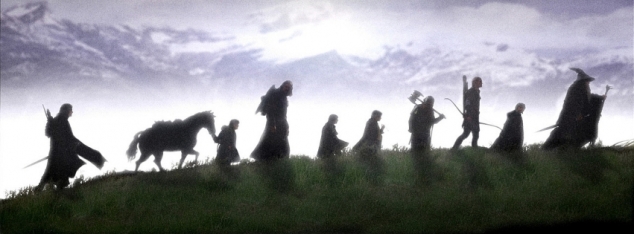It was the liturgy that first warmed my heart.
I tried to be cautious, not to fall in love too quickly. How long should one wisely wait to call a church one’s home? I still don’t know the answer to that question. I thought the three-ish months of spring 2014 was enough before I posted the first cautious, positive-but-non-committed reference to Plow Creek Mennonite Church (actually, it was just a reference to Plow Creek Bakery) on social media. Then a week later, another post referencing Plow Creek Farm’s delicious strawberries.
But the fact is, my heart was aglow from the first moment one Sunday in March 2014 when I settled into the beat-up metal folding chair with the dark blue Mennonite Hymnal: A Worship Book sitting on it. In a matter of less than two hours, I tentatively decided there was something good worth at least a second drive of 40 minutes one way to this extremely awkward church of 20 or so hippie-ish farmers in the boonies who worshipped in a questionable-smelling building and ate fellowship meals on the most unsanitary tables I’d ever encountered.
It was love at first sight, despite my valiant attempts to moderate my feelings. Christiana wrote a good post describing how great and un-great we are (were). I don’t feel the need to repeat what she said, but if you want to know more about the church I loved, read it.

“Prepare ye the way of the Lord!” Palm Sunday dance
There were about 18 months of delightful fellowship, during which time some new people joined us. The few Sundays when all 30 of us managed to assemble were great shows of triumph in my eyes. We were the scrappiest little outpost for Jesus’ eternally victorious kingdom. I didn’t think we were perfect, of course, but we were good. There would always be room to improve, sure — but we were doing it right.
I saw what I wanted to see.
Month after month, we shared our homemade bread and juice from the grapes on our land in a common cup formed by one of us. We moved through the nourishing cycle of the church’s calendar, telling each other the story of our redemption and future glory in Jesus Christ, our death-beating God. Our liturgy was not plagued by the “worship wars” — we made room for faith formation old, new and everywhere in between. Our children unwittingly yielded stunning insights about the kingdom we were to inherit. (Precious “kids’ time!” How close you brought us to the New Jerusalem!)
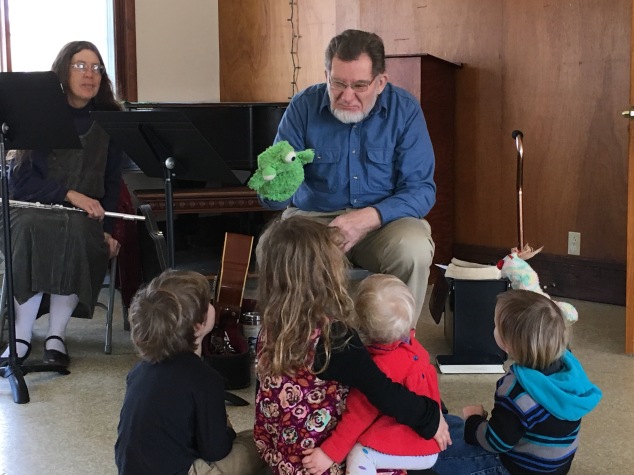
God gave our kids insights that blew me away sometimes
After those 18 months, I got a new job that allowed me to move anywhere I wanted. I declared my desire to move onto Plow Creek’s jointly owned property. I wanted to take our relationship to the next level. I was courageously scorning the world’s disapproval to embrace the wild, dark, organic-smelling, bug-and-spider-infested, devoid-of-any-good-pizza-places boonies I’d always said I’d never move to. The call of my King was unmistakable, and communion with him was better than anything.
Two years after falling in love, I euphorically pronounced my formal membership commitment to Plow Creek Mennonite Church on Easter Sunday 2016. Perhaps I’ll never have the words to describe my joy, my relief, my passion that day.

Our Common Building will no longer be ours, but the kingdom for which it stands will never pass away.
And then… I slowly grew conscious of our problems. By late summer, some of the newer people were talking about leaving. I was sad, but had to accept it in the end.
I still remember what I call the last good night: On November 8, 2016 — the night of the U.S. presidential election — a group from Plow Creek and our sister congregation, Willow Springs Mennonite Church, shared communion in my living room, pledging anew our fidelity to the kingdom of God regardless of whatever non-good news the election results yielded. The honor of facilitating our meal and exhorting these beloved people was mine — a memory I’ll cherish for life.

The leftover bread after communion on election night
On November 9, in the immediate aftermath of the aforementioned non-good news, more of our people announced they were planning to leave our fellowship. This blindsided me. I had no warning. My heart broke, and the resulting pain persisted — through Advent, through Christmas, past Epiphany — until it transformed into numb gloom sometime in mid-February.
During this time, we lost three of our oldest members to literal, physical death. A cloud of death was over us all. There would be no recovery. We were witnesses to the grieving process of our own dissolution. This process included the flow of many tears and sharp words — precious testaments in themselves to the familiarity we had cultivated — as we futilely tried to resist speaking the reality of our ending.
By Easter 2017, we were no longer meeting as a congregation. Only one year after I had joyfully claimed membership, we were effectively finished. Our energy had failed.

Our last Christmas Eve, 2016
How can I describe the path that led us to pronounce the reality of our undoing? Some things are only for us to try to make sense of. God knows I’m the least qualified to analyze it, since I of all of us know the least about it. The truth is that there were significant problems among us long before I ever sat down in that folding chair. Part of the story is that we were victims of our human frailty. The part of the story I’m clinging to is that we were targeted by enemy forces because we had something worth targeting. And in his inscrutable sovereignty, God allowed them this victory over us, for the ultimate purpose of his glory, the design of which we may or may not one day know. Amen.
Did not God allow his enemies a victory over his own Son? If he then gave Jesus a greater victory, our hope for sharing in that greater victory is in our unity with Jesus. Beloved people, that is something no enemy can take away. Now is the time to demonstrate our faith in that Resurrection victory is real.

The farm team planning creation care farming operations
I have no hard feelings toward any of us. I refuse to. That would accomplish absolutely nothing, and it would be just one more victory for the enemy. They won’t get that from me.
Nonetheless, for me — I can’t speak for the others — there remains a sense of shame. Particularly because my job and all its accompanying networking centers around the church. Summer is church convention season, so I’m meeting all kinds of church people, and naturally one of their first questions is, “What congregation are you from?” And again and again I have to pronounce the hideous confession, “Well, I’m church-homeless right now.” And then, particularly because of my age, I feel the urge to clarify that I’m not one of “those millennials” who’ve “given up on church.” So then I have to say, “My church is dissolving.” And as long as I don’t really think about what I’m saying, and the questioner doesn’t press too much, I can get through it. But the fact is it’s a humiliating admission that doesn’t look good.
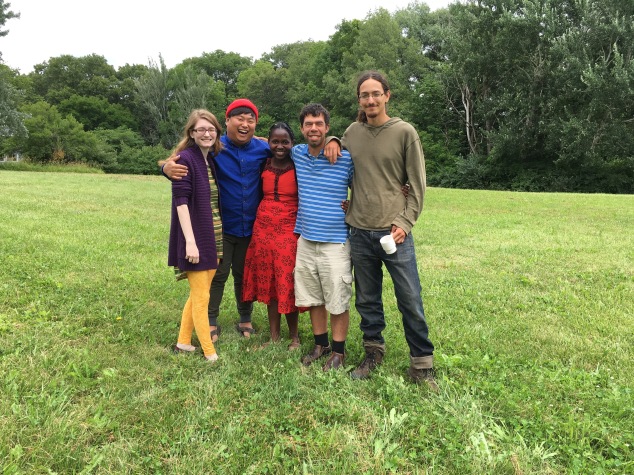
Our prayer group petitioned earnestly for spiritual renewal
Deeper than that, though — even if my job were unrelated to the church — is the fact that being the church is central to my identity. I love Jesus. As part of his church, I’m betrothed to him. To be out of fellowship with any congregation is to be outside of his plan for us. The alternative is the desert. I know what it’s like — I’ve been here before. It’s terrible. My spirit recoils at being lost out here again.
Yet here I am, in the church-homeless desert. I’m disoriented and demoralized. I don’t know where I’ll get communion next, and that not-knowing is a poverty to my soul. To add to the upheaval, Plow Creek’s dissolution has precipitated the sale of my house, so I have to move from my physical home as well.
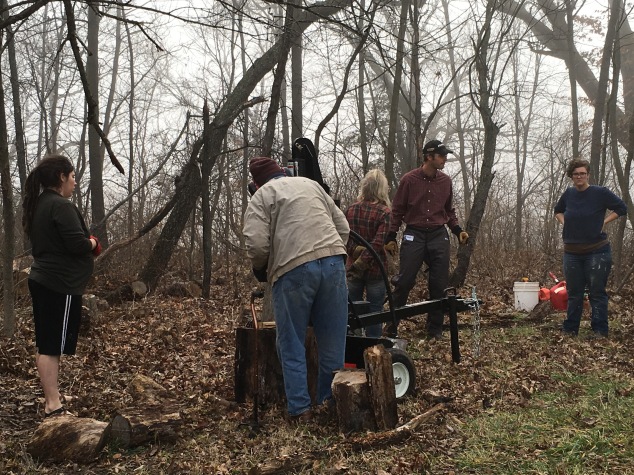
Love in action: Chopping wood to keep each other from freezing in wintertime
It hit me tonight that I’m moving out in one week, and this means separation for real. A last good-bye is coming sometime this week. It hit me hard. I wept hard. But what’s really been impressed on me this past week is that this is the church’s story, past and present. Our story is one of being assaulted and torn apart. My little story is (so far) one of the much milder ones. I wrote in a previous post how our counselor, Allan Howe, compared our experience to that of the martyrs.
It is really disappointing to see people disappearing and dying. It’s a heavy time; there’s no denying it. It’s very tough. I’m helped by looking over Christian history and seeing others who went through something like this. When I first saw this kind of church, I felt like I had met what I believed in. I was fresh out of college and could hardly believe what I was seeing — sharing solidarity week after week. We’re in the heritage of the martyrs and folks who were very lonely and sometimes killed. That happened in renewal movements like the Anabaptists and lots of other Christians. We’re in very good company.
At the time, I thought he was being a bit hyperbolic. Maybe he was. But also maybe not. Revelation 12 is our story — not our full story; thanks be to God — but it is our story.
So when the dragon saw that he had been thrown down to the earth, he pursued the woman who had given birth to the male child. But the woman was given the two wings of the great eagle, so that she could fly from the serpent into the wilderness, to her place where she is nourished for a time, and times, and half a time. Then from his mouth the serpent poured water like a river after the woman, to sweep her away with the flood. But the earth came to the help of the woman; it opened its mouth and swallowed the river that the dragon had poured from his mouth. Then the dragon was angry with the woman, and went off to make war on the rest of her children, those who keep the commandments of God and hold the testimony of Jesus. (Revelation 12:13-17)
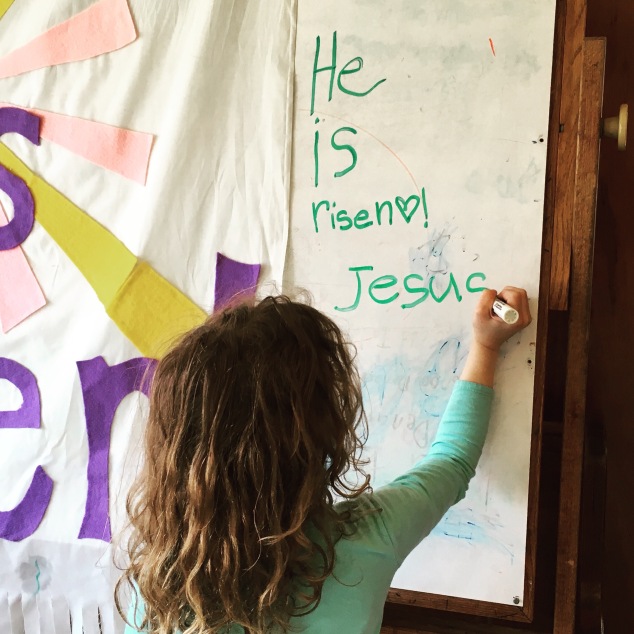
You can destroy us, but you can never undo our story.
Over the past several months, I’ve been writing a lot about our assurance of victory. I’ve been clinging to that because I need to. And it’s all true. But equally true is the present darkness arrayed against us. We are at war, and our history all too clearly displays that we’re the weaker party. Whether by brute-force extermination, schisms and heresies, sedation to complacent inertia, or strength-sapping exhaustion, our enemy has gotten plenty of victories. And the more we love Jesus and pursue fidelity to him, the more we become a target for the enemy. That is our reality right now.
I absolutely believe we had something good among our weakness, something rich among our poverty, something precious among our simplicity — some kingdom-y excellence our enemy wanted destroyed. Just think of how many victories we must have come away with in our time to warrant that kind of attention. It makes me smile a tiny bit as I feverishly wait to taste the body and blood of the Lord through a mouthful of desert sand.

Whether we live or die, we are the Lord’s.



